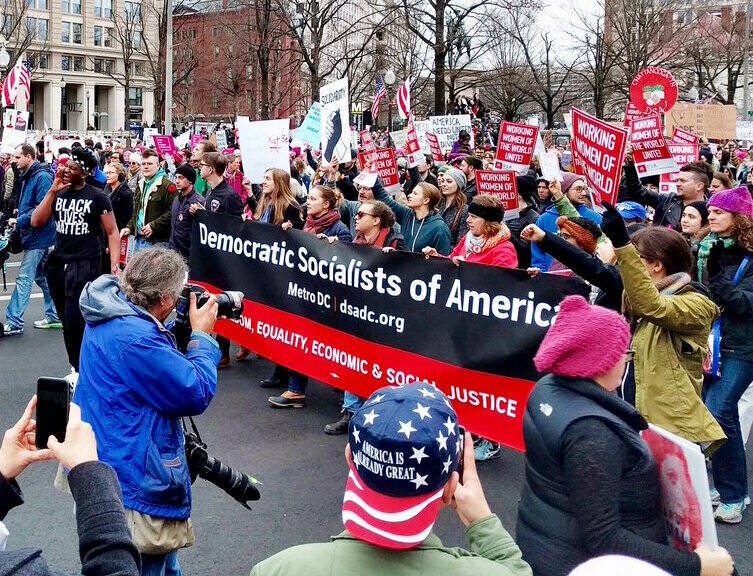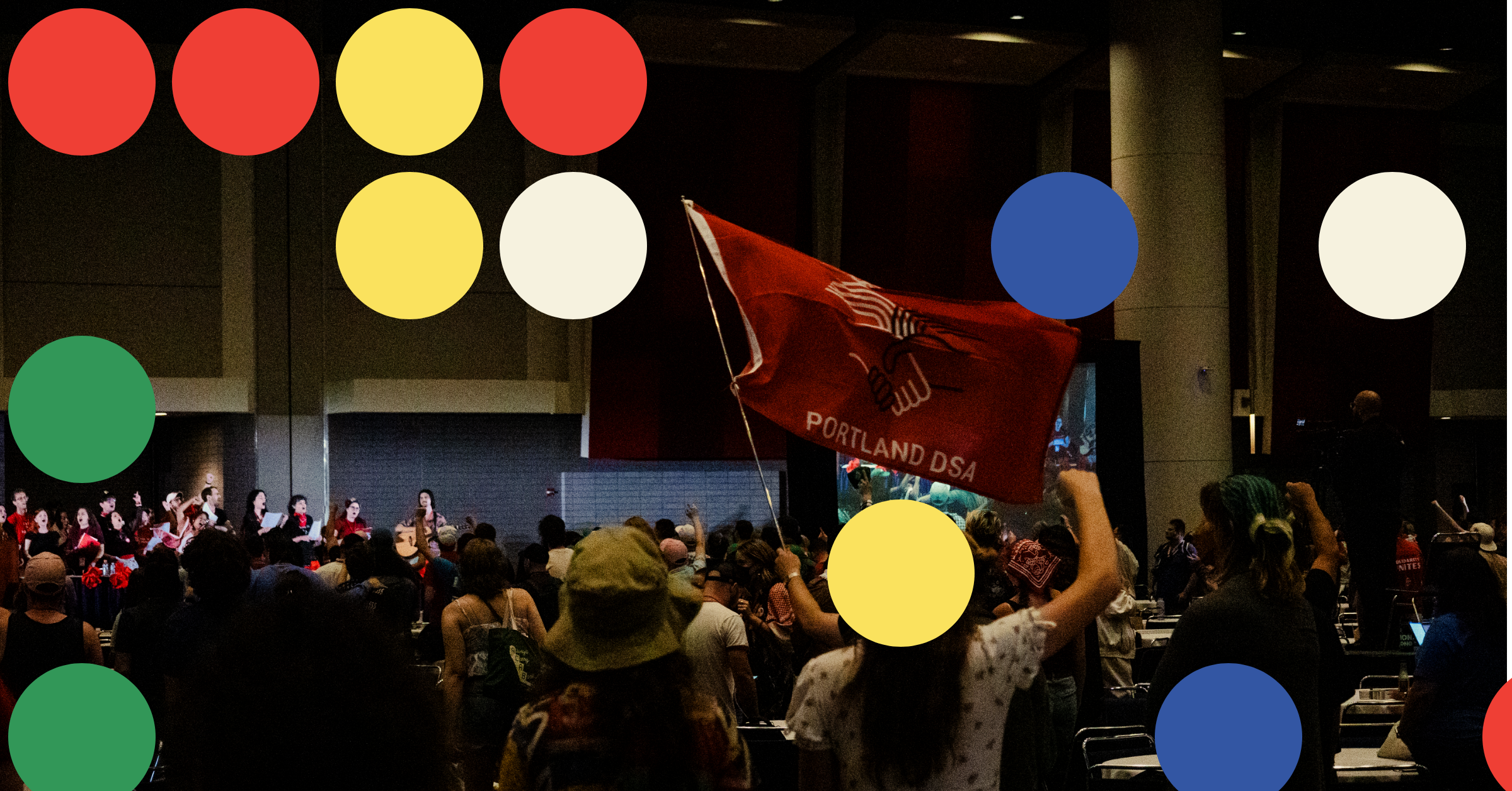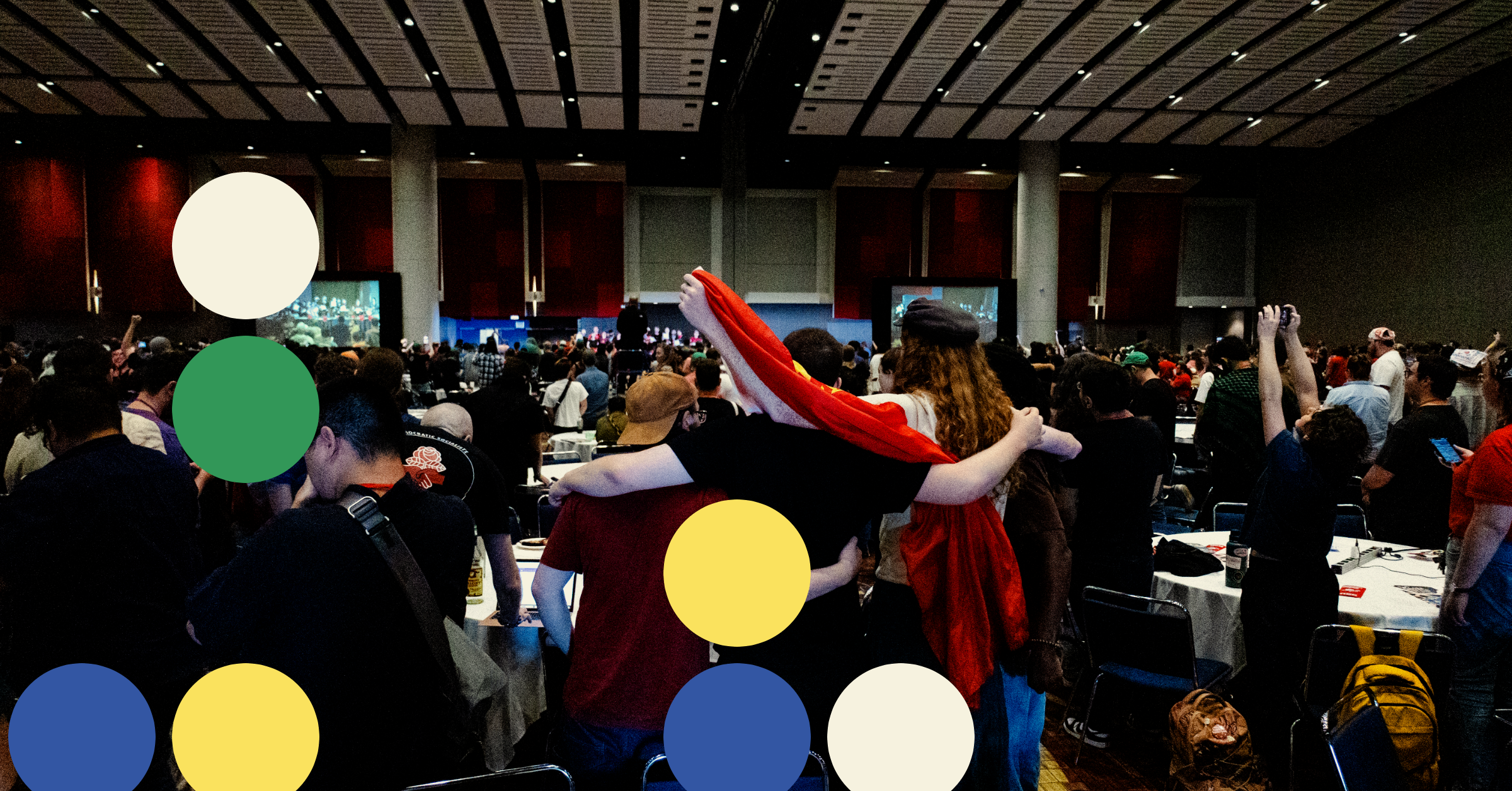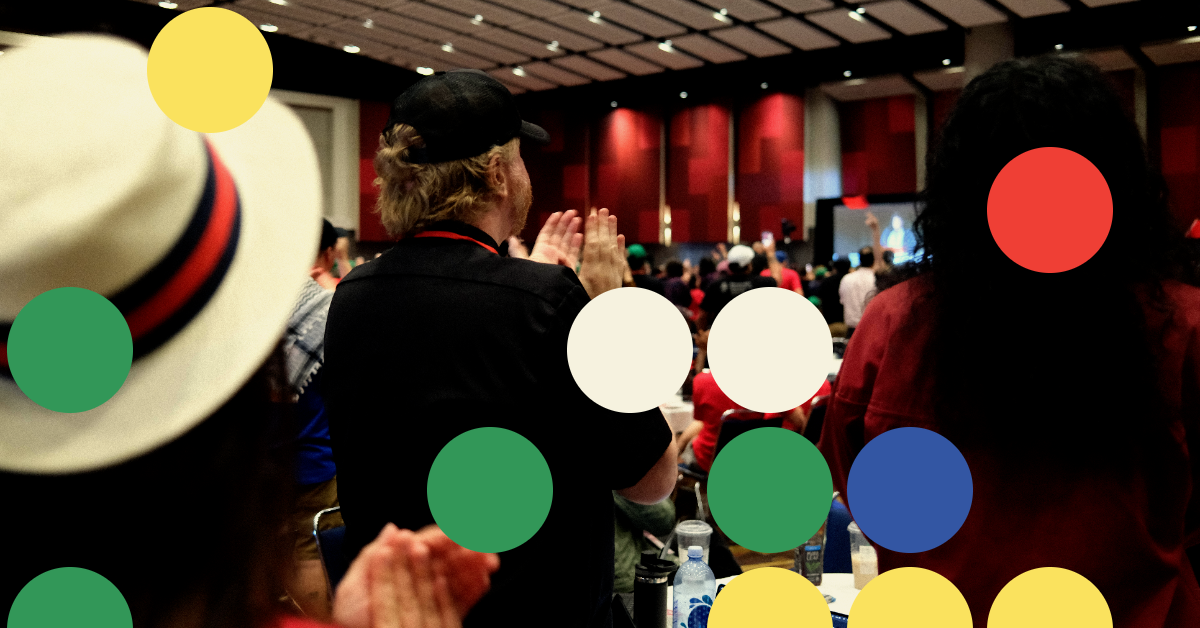On Thursday, December 20, The New Republic ran a piece attacking several DSA chapters. The following open letter is signed by leaders of color from some of the chapters attacked. Some of us were interviewed for the story, but our responses were not included in the final draft because our answers did not fit the narrative the reporter wanted to craft. We wrote this letter to correct the deeply inaccurate claims and distortions made in the article.
Abigail Torre, co-chair, East Bay DSA
Ajmal Alami, YDSA national co-chair and Virginia Tech YDSA
Ashley Payne, co-chair, East Bay DSA Labor Committee
Jeremy Gong, DSA NPC and East Bay DSA Steering Committee
Marianela D’Aprile, DSA NPC and Chicago DSA
Miguel Duarte, co-chair, East Bay DSA Racial Solidarity Committee
Paul Prescod, Democratic Socialist Labor Commission Steering Committee
Reuben Wilson, Philadelphia DSA
Rohan Shah, Philadelphia DSA
Syne Omar Salem, Philadelphia DSA
Miguel Salazar’s recent piece on DSA in The New Republic purports to examine what Salazar calls the organization’s “race problem.” Unfortunately, it is full of shoddy reporting, false framing, and missing context. The article fails to include quotes or even factual corrections from dozens of hours of interviews with DSA activists, including people of color, seemingly because they don’t fit a pre-determined narrative. This is a shame because the piece addresses very important questions confronting DSA and the socialist movement as a whole currently, and to which nobody in the organization has yet to provide adequate answers.
Contrary to what Salazar’s piece implies, all political tendencies within DSA agree on the importance of fighting racial oppression; all agree that it’s a problem that DSA is largely white; and all agree that DSA must be a democratically-run socialist organization. The main point of disagreement that remains is how to most effectively address these issues and concerns.
As DSA leaders in East Bay, Philly, Chicago, New York City, and Virginia, we think it’s important to correct the article’s false narrative about our chapters and our politics. DSA members of color, like us, have been on both sides of many strategic and organizational debates in DSA. Yet Salazar unfortunately chose to present only one side of this debate, in order to make it seem like all DSA members of color share a common outlook. This is the same trick that’s been used for years against Bernie Sanders, who is constantly criticized for his “race problem” even though he is far more popular among people of color than he is among white people.
Along with numerous other DSA comrades who support the Momentum tendency, some of us did hours of interviews with Salazar, yet he didn’t quote us or incorporate our corrections into his story. As a result, the narratives in the piece, and the politics he ascribes to The Call and Momentum, are skewed, caricatured, or outright false.
For example, he implies that an article one of us co-authored, titled “Race, Class, and Socialist Strategy,” defends what another member called “class reductionism,” or the idea that racial, gender, and other forms of oppression are unimportant or distract from class politics. Yet this is the opposite of the article’s argument, that the fight against racism is central to fighting capitalism. Did Salazar actually read it or the two other related articles? These pieces explicitly argue that working-class demands like Medicare for All and good schools for Oakland teachers and predominantly non-white students counter the effects of racial oppression. Additionally, they argue that socialists must also tackle issues like police brutality and deportations head-on and fight for demands like reproductive justice.
Given the long history of racial segregation and oppression in this country, coupled with the mainstream delegitimization of socialist and class politics throughout the 20th century, it will take a lot of hard work and real victories for workers to build a truly multi-racial, mass socialist movement. Hit pieces like Salazar’s echo the centrist attacks against socialists — which argue that an emphasis on class politics is incompatible with a strong commitment to anti-racism — and fail to move us in this direction.
Differences in a big-tent organization like DSA are to be expected and welcomed, especially when it comes to how best to approach the fight against racism. There are also differences over how to most effectively build a multi-racial, working-class, and multi-generational organization. But Salazar’s insinuation that specific tendencies in DSA are authoritarian or crypto-racist is entirely without foundation.
Jovanka Who?
Salazar spends the first 600 words of his article discussing East Bay DSA’s decision to not endorse Cat Brooks, a candidate in this year’s mayoral election in Oakland. He goes to great lengths to imply that the decision was due to DSA’s lack of concern for black Oaklanders, painting the chapter as picking on a dedicated black organizer.
Salazar writes, “A proposal to ‘prioritize’ two other endorsements — for Prop 10 and a candidate for California’s state assembly — had snowballed into a referendum on Brooks herself, with critics saying she was too compromised to receive the DSA’s backing.”
Though Salazar doesn’t acknowledge it, that candidate for state assembly has a name: Jovanka Beckles. Beckles, who DSA did endorse and work with in a hard-fought but ultimately unsuccessful campaign, is a Black, Latina, queer immigrant with deep roots as a city councilor in Richmond, California, where she fought police violence, evictions, and environmental hazards that disproportionately impacted black and brown neighborhoods. While Beckles did not get elected to the state assembly, East Bay DSA was instrumental in getting her through a crowded primary field and into the general election, where she earned 90,000 votes as an open democratic socialist in a hotly contested race.
Some of us connected Salazar with Beckles so she could comment on the situation, but he decided not to interview her.
In reporting on this meeting, the only East Bay DSA member Salazar quotes is Forrest Schmidt, a white man and self-described Brooks campaign operative who has hardly been involved in DSA other than to push an endorsement for Brooks. Salazar quoted Schmidt exclusively despite interviewing long-time chapter leaders, including people of color and women, who countered Schmidt’s and Brooks’s narratives. In fact, the proposal to prioritize the Beckles and Prop 10 campaigns only became “a referendum on Brooks” once Schmidt made it so.
Regarding Schmidt’s claim that there was racial bias in selectively checking membership, it was obvious to the chair that Tur-Ha Ak wasn’t a member because he didn’t have one of the red voting cards that are only given to members at general meetings. We told Salazar this, and sent him documentation describing the event at length, along with additional statements providing context, but he declined to include this detail in his otherwise extremely detailed story.
Salazar also cherry picked quotes from an article one of us wrote — on why East Bay DSA shouldn’t endorse Cat Brooks — but, oddly, didn’t link to it. If he did, his readers might have seen that his narrative was incomplete.
Omitting all of this critical information is such an extreme example of journalistic malpractice that it’s hard to believe that Salazar and his editor overlooked it by mistake.
Long Interviews, No Quotes
Salazar takes particular aim at a few DSA members in the East Bay and Philadelphia chapters. Several members in both chapters spoke to him for hours, taking time away from critical organizing tasks for what they were led to believe would be a good-faith article. Those conversations seemed useful and productive to those who participated in them, but Salazar does not even quote any of these members whom he implies are the source of DSA’s issues with demographic composition.
Whether he was misleading our organizers when he spoke to them on the phone or is misleading readers in his article, declining to allow the parties he caricatures a single quote on their own behalf is a hallmark of propaganda, not serious journalism.
Not only that, but when organizers from East Bay DSA offered to put Salazar in touch with leaders of our Racial Solidarity Committee to get their thoughts on socialism and racial justice, Salazar declined to speak with them.
DSA and Democracy
Salazar consistently exaggerates the scope of internal conflicts to make for a high-intensity drama. Squabbles and disagreements become “raging debates,” the Momentum tendency is made into a small but powerful anti-democratic clique, the divisions in the organization are grand battles where “hard-liners have clashed on numerous occasions with other socialists, often minorities themselves.” The reality is far from the picture Salazar paints of an organization rife with racial divisions and boiling over with rageful conflict.
Contrary to Salazar’s portrayal, the East Bay and Philadelphia DSA leadership groups consistently win large mandates of support from local members. At Philadelphia DSA’s November general meeting, which over 200 members attended, all of the motions that members from the Momentum tendency supported were passed by wide margins. At East Bay DSA’s convention in April 2018, after two hours spent debating two competing strategic visions, the membership adopted a Momentum-backed priorities resolution for the chapter with over two thirds voting in favor, and the associated Bread & Roses slate won a supermajority on the chapter’s steering committee. Nearly 350 people voted. A December resolution calling on Bernie to run in 2020 won overwhelmingly, with almost 200 members in attendance. In November, East Bay DSA members also unanimously approved a resolution to support the impending Oakland teachers’ strike.
Had Salazar ever visited a Philadelphia or East Bay DSA meeting, he would have found it difficult to come to the conclusion that an anti-democratic minority is strangling the will of the membership.
Everyone in DSA agrees that it is crucial for us to build a democratic, multi-tendency, big-tent organization. We think that the best way to do this is to give the membership the power to decide collectively through democratic votes on political priorities, which elected leaders are empowered to carry through with the support and participation of the members. Any political organization needs to maintain a degree of flexibility in order to respond to political developments, as well as space for membership initiative and multiple campaigns. But democracy is grounded in majority will, and that is what East Bay and Philadelphia DSA place an emphasis on. All members are free to bring proposals to general meetings to be debated and voted on, and whoever can persuade a majority of the members wins. This does not mean that members are not permitted to do whatever they want on their own, but it means that the resources and name of the chapter cannot be used unless a majority supports the project. It is ultimately not democratic if self-selecting groups of people can effectively speak on behalf of everyone else without their input.
Our Path Forward
While we don’t like to see dedicated members of the socialist movement smeared with out-of-context quotes and outright falsehoods, we will not let this kind of innuendo stop us. The stakes for working people in this country are too high.
Across the country, DSA members are supporting class-struggle candidates like Bernie Sanders, Julia Salazar, Jovanka Beckles, Carlos Ramirez-Rosa, Kristin Seale, Alexandria Ocasio-Cortez, and Rashida Tlaib. The Philadelphia chapter was recently cited by the city council for playing a critical role in winning a fair work week law, which will improve the lives of over 130,000 mostly non-white workers across the city. We are playing a small but growing role in revitalizing unions across the country as seen in our support for the wave of public education strikes sweeping the country. At the same time, we are also committed to participating in mass mobilizations against police brutality, deportations, and other forms of injustice and oppression.
There’s no quick fix to the burning question of how to root DSA in working-class communities of color. DSA began as a mostly white organization and has grown through a process of self-selection since 2016, which tends to reinforce this dynamic since people often join through their personal networks. Regardless of what specific issues chapters focus their energies on, they remain overwhelmingly white. And no voluntary organization is immune to the fact that American society in general is still highly segregated along racial lines. But that doesn’t mean there isn’t more that everyone in DSA can do.
This weakness is very real, and the unfortunate reality is that DSA in general has not yet been able to change the fact that the organization is predominantly white and middle class.
As we’ve noted, all wings of DSA are committed in theory and practice to fighting racism and building a multi-racial movement. Actually doing so is much easier said than done in a country that is not just racially segregated in its schools, social networks, and neighborhoods, but economically segregated within racial groups. But it doesn’t follow from this that the solution is to abandon our fights for demands that benefit the working class in all its diversity, nor to uncritically follow every single initiative undertaken in the name of fighting oppression and exploitation. Nor will accusing fellow DSA members of racism because they disagree on tactical questions — like who to endorse for mayor or whether to do brake light clinics — do much to change our demographic composition. If anything, these types of over-heated faction fights are a major turn off for most people who aren’t already committed to spending their time on organized political action.
Rooting DSA in the multi-racial working class requires transforming the organization into a far more powerful force than it is today, so that it can win major gains for working people, inspire them to become socialists, and join our organization. DSA participation and leadership in mass campaigns such as the teachers’ strike wave and the electoral campaigns of Jovanka Beckles, Alexandria Ocasio-Cortez, and Bernie Sanders, give us a glimpse of what this might look like. DSA’s ability to attract and retain a large number of working-class people of color is above all a question of how to make our organization relevant to the many millions of workers of all backgrounds who want to bring radical changes to their lives.
That is the work that will help to build DSA into the multi-racial, democratic, militant working class organization it needs to be to succeed. Members of the elite — whether conservative or liberal — will do everything in their power to stop that from happening. We expect more attacks like this as socialism grows stronger, but we will keep fighting and working to build solidarity across all diverse sections of the working class — until everyone is free.




